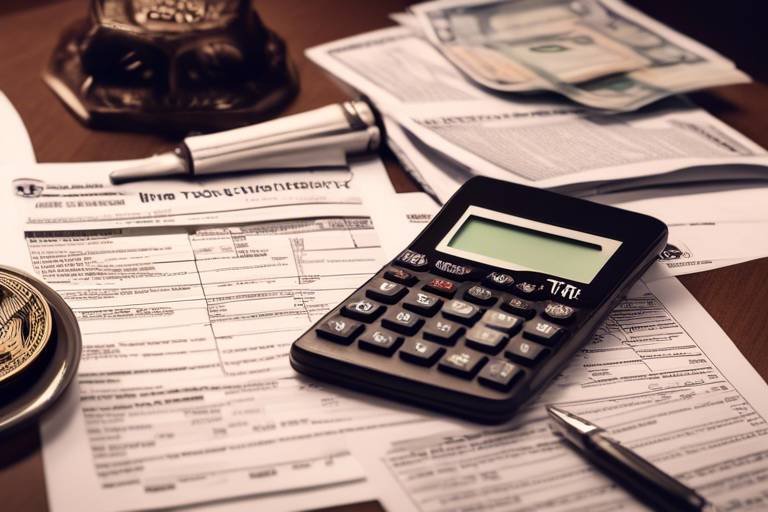How to Manage Legal Risks in Cryptocurrency Mining Operations
In the rapidly evolving world of cryptocurrency, mining operations have emerged as both a lucrative venture and a complex legal landscape. As the popularity of digital currencies continues to surge, so too does the scrutiny from regulatory bodies. This article explores the various legal risks associated with cryptocurrency mining and provides actionable strategies for effectively managing those risks to ensure compliance and sustainability in operations. It's essential for miners to not only focus on profitability but also to navigate the intricate web of laws and regulations that govern their activities. After all, a successful mining operation is one that can withstand legal challenges while maintaining its profitability.
The first step in managing legal risks in cryptocurrency mining is to understand the regulatory framework that governs this industry. Different jurisdictions have different laws, and what may be permissible in one region could be illegal in another. Key regulations often include anti-money laundering (AML) laws, know-your-customer (KYC) requirements, and specific guidelines on energy consumption and environmental impact. It's crucial for miners to stay updated on these regulations, as non-compliance can lead to hefty fines or even shutdowns. Regularly consulting with legal experts who specialize in cryptocurrency can provide invaluable insights into the ever-changing landscape.
Another critical aspect of managing legal risks is ensuring that all necessary licenses and permits are obtained before commencing mining operations. Depending on the location, miners may need to secure various licenses, including business licenses, environmental permits, and specific cryptocurrency-related licenses. Compliance with local and national regulations is not just a legal obligation; it’s a foundational element for building a sustainable business. Failing to obtain the required permits can lead to severe legal repercussions, including fines and the potential shutdown of operations. Therefore, it's advisable to create a checklist of required licenses, which can vary significantly by region.
The environmental impact of cryptocurrency mining cannot be overlooked. As the industry faces increasing scrutiny over its energy consumption and carbon footprint, miners must align their operations with environmental regulations. Many jurisdictions are implementing stricter laws regarding energy use and emissions, compelling miners to adopt sustainable practices. For instance, utilizing renewable energy sources like solar or wind can not only reduce environmental impact but also help in meeting regulatory requirements. By being proactive about sustainability, miners can mitigate legal risks while contributing positively to the environment.
Local laws can significantly influence mining operations, particularly through zoning laws and site selection. Miners must be aware of any restrictions that may apply to their chosen location. For example, some areas may have strict zoning laws that prohibit high-energy-consuming businesses, while others may offer incentives for green energy usage. Understanding these local laws is essential for making informed decisions about where to set up operations. Additionally, engaging with local authorities can provide insights into potential changes in legislation that could affect mining activities.
To ensure compliance with environmental regulations, miners can adopt several practical strategies. Implementing energy-efficient technologies, such as advanced cooling systems and optimized mining hardware, can significantly reduce energy consumption. Moreover, establishing partnerships with renewable energy providers can further enhance sustainability. By creating a comprehensive compliance plan that includes regular audits and assessments, miners can proactively identify and address potential legal risks before they escalate.
Cryptocurrency miners also face a myriad of tax obligations that can complicate their operations. Understanding the tax implications, such as income tax, capital gains tax, and potential deductions related to mining activities, is crucial for maintaining compliance. Miners should keep detailed records of all transactions and expenses to ensure accurate tax reporting. In many cases, consulting with a tax professional who understands cryptocurrency can help miners navigate these complexities and avoid costly mistakes.
Well-drafted contracts play a pivotal role in mitigating legal risks in cryptocurrency mining. Agreements with partners, suppliers, and customers should clearly define responsibilities, expectations, and dispute resolution mechanisms. This clarity not only helps in avoiding misunderstandings but also serves as a protective measure in the event of legal disputes. It's essential to review these contracts regularly and update them as necessary to reflect any changes in regulations or operational practices.
Service level agreements (SLAs) are particularly important in the context of cryptocurrency mining. These contracts outline the expected performance levels of service providers, ensuring that mining operations can rely on consistent and reliable services. For instance, if a mining operation depends on cloud mining services, an SLA can specify uptime guarantees, maintenance schedules, and response times for issues. Establishing clear SLAs can help mitigate risks associated with service disruptions, which can be costly for mining operations.
Including dispute resolution mechanisms in contracts is another effective strategy for managing legal risks. Options such as mediation, arbitration, or even specific legal venues can be outlined to provide a clear path for resolving conflicts. This proactive approach can save time, money, and stress by avoiding lengthy court battles. By having a solid plan in place for potential disputes, miners can focus on their operations without the looming threat of unresolved legal issues.
- What are the main legal risks associated with cryptocurrency mining?
The primary legal risks include regulatory compliance, licensing issues, environmental regulations, and tax obligations.
- How can miners ensure compliance with local laws?
Miners should conduct thorough research on local regulations, obtain necessary permits, and engage with local authorities.
- What role do contracts play in managing legal risks?
Contracts help define responsibilities and expectations, providing a legal framework for resolving disputes and ensuring compliance.
- Are there tax benefits for cryptocurrency miners?
Yes, miners can potentially deduct certain expenses related to their mining operations, but they should consult with tax professionals for guidance.
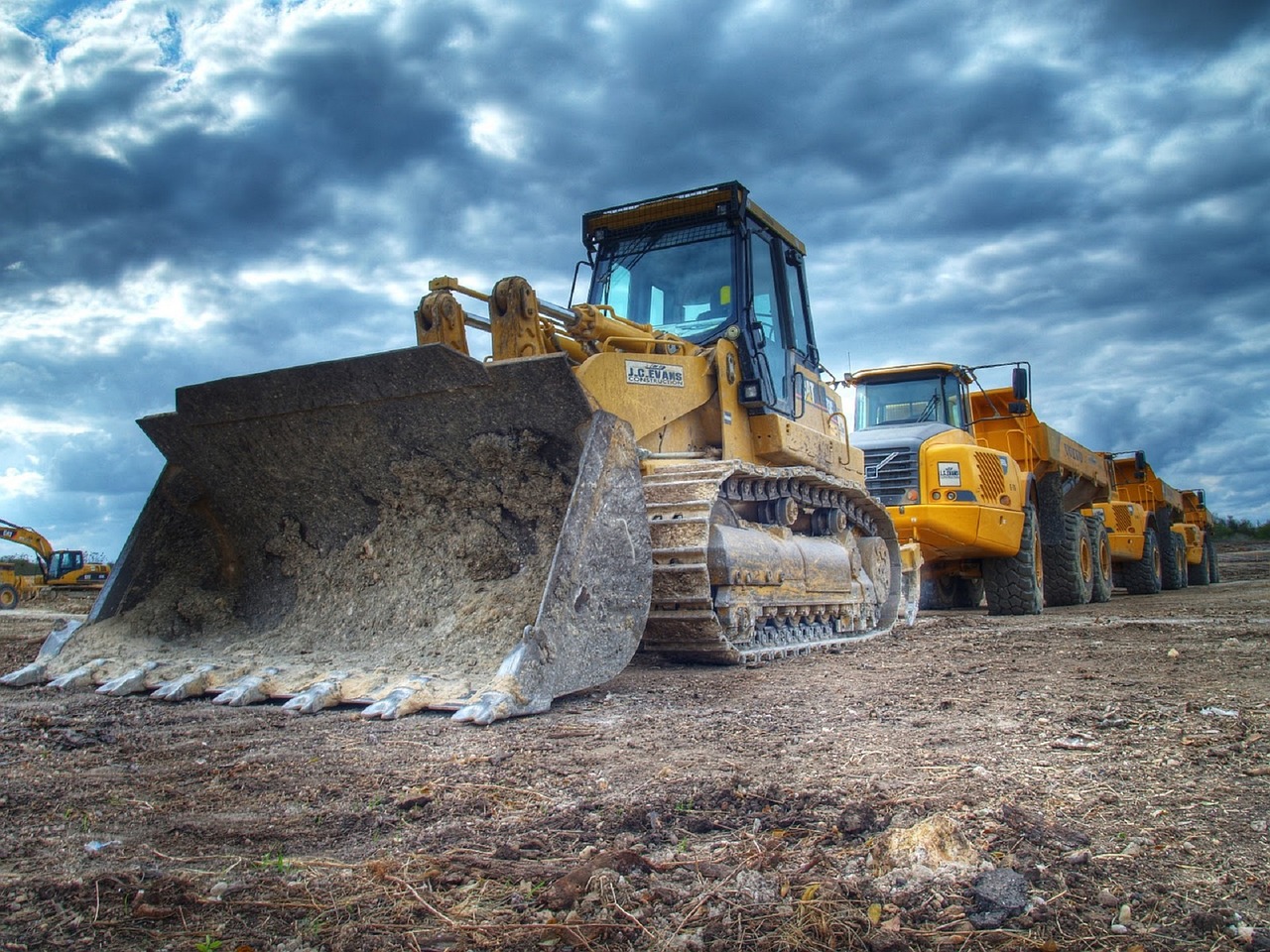
Understanding Cryptocurrency Regulations
Cryptocurrency mining operates in a complex web of regulations that can vary significantly from one jurisdiction to another. As a miner, it's crucial to navigate this landscape carefully to avoid legal pitfalls. The regulatory framework surrounding cryptocurrencies is still evolving, which means that what is compliant today might not be compliant tomorrow. This uncertainty can feel like trying to hit a moving target, making it essential for miners to stay informed about the latest developments in the law.
At its core, cryptocurrency regulation is designed to address concerns related to money laundering, tax evasion, and consumer protection. Governments around the world are trying to strike a balance between fostering innovation and preventing illicit activities. For instance, in the United States, the Financial Crimes Enforcement Network (FinCEN) has established guidelines that classify cryptocurrency mining operations as money service businesses (MSBs). This classification means that miners must comply with anti-money laundering (AML) regulations, which can include registering with FinCEN and implementing customer verification processes.
Across the globe, different countries have adopted varying stances on cryptocurrency mining. For example, in China, a crackdown on mining operations has led to significant shifts in the industry, pushing miners to relocate to more favorable jurisdictions. Conversely, countries like Canada and El Salvador have embraced cryptocurrency, creating a more welcoming environment for miners. This disparity can make it challenging for miners to determine where to set up operations, as they must consider not only the regulatory framework but also the potential for future changes. To illustrate this point, here’s a quick comparison of how different regions approach cryptocurrency mining:
| Region | Regulatory Approach | Mining Viability |
|---|---|---|
| United States | Regulated as MSBs | Moderate |
| China | Crackdown on mining | Poor |
| Canada | Supportive regulations | High |
| El Salvador | Pro-cryptocurrency | High |
Moreover, miners must also be aware of local regulations that can impact their operations. For example, some regions have specific laws regarding energy consumption and emissions, which can affect the sustainability of mining practices. The rise of environmental consciousness has led to stricter regulations aimed at reducing the carbon footprint of mining operations. Therefore, understanding both national and local regulations is vital for miners to ensure compliance and avoid hefty fines or shutdowns.
In the end, staying ahead of the curve in the cryptocurrency regulatory landscape is not just a matter of legal compliance; it’s about positioning your mining operation for long-term success. By keeping abreast of regulatory changes and aligning your practices with legal requirements, you can mitigate risks and capitalize on opportunities in this rapidly evolving market.

Licensing and Permits
When diving into the world of cryptocurrency mining, one of the first hurdles you need to clear is the maze of . Just like starting any business, there are legal requirements that must be met to operate legally and sustainably. Ignoring these can lead to serious consequences, including hefty fines or, in the worst-case scenario, the shutdown of your operations. So, what are the essential licenses and permits you need to consider?
First off, it's crucial to understand that the requirements can vary significantly depending on your location. In some jurisdictions, you may need a specific license to operate a mining facility, while others might require you to register your business with local authorities. This is where doing your homework pays off. Research the regulations governing cryptocurrency in your area, as they can range from straightforward to quite complex.
For instance, in the United States, federal regulations may not explicitly require a mining license, but state and local laws can impose strict requirements. Some states have embraced cryptocurrency wholeheartedly, offering incentives for miners, while others have imposed bans or stringent restrictions. It's a bit like navigating a minefield—one wrong step, and you could find yourself in legal trouble.
To help you visualize this regulatory landscape, here's a quick table outlining potential licenses and permits you might need based on different jurisdictions:
| Jurisdiction | Required Licenses/Permits |
|---|---|
| United States | Business License, State Mining License (varies by state) |
| Canada | Business Registration, Provincial Mining License |
| European Union | Business License, VAT Registration (varies by country) |
| China | Mining License (currently restrictive) |
In addition to licenses, you’ll also want to consider the need for permits related to your physical location. For example, if you plan to set up a mining operation in an industrial area, you may need zoning permits. These permits ensure that your mining activities comply with local land use regulations. Think of it like getting a green light from the traffic cop before you zoom off into the sunset—without it, you could find yourself pulled over by the authorities.
Furthermore, don't forget about the importance of compliance with environmental regulations. Depending on your mining setup, you may need permits related to energy consumption or emissions. As the world becomes increasingly aware of climate change, many jurisdictions are tightening their grip on industries that consume vast amounts of energy. Aligning your mining operation with sustainability goals not only helps you comply with regulations but can also improve your public image.
In summary, navigating the licensing and permit landscape for cryptocurrency mining can feel overwhelming, but it’s crucial for the success and legality of your operation. Always consult with legal experts familiar with cryptocurrency regulations in your area to ensure you're on the right side of the law. Remember, being proactive about your licenses and permits is like having a sturdy life jacket when you’re out sailing—it's better to be safe than sorry!
- Do I need a license to mine cryptocurrency? - It depends on your jurisdiction. Some places require specific licenses, while others do not.
- What types of permits might be necessary? - You may need business licenses, zoning permits, and environmental permits depending on your location.
- How can I ensure compliance with local laws? - Research your local regulations, consult legal experts, and stay updated on any changes in the law.
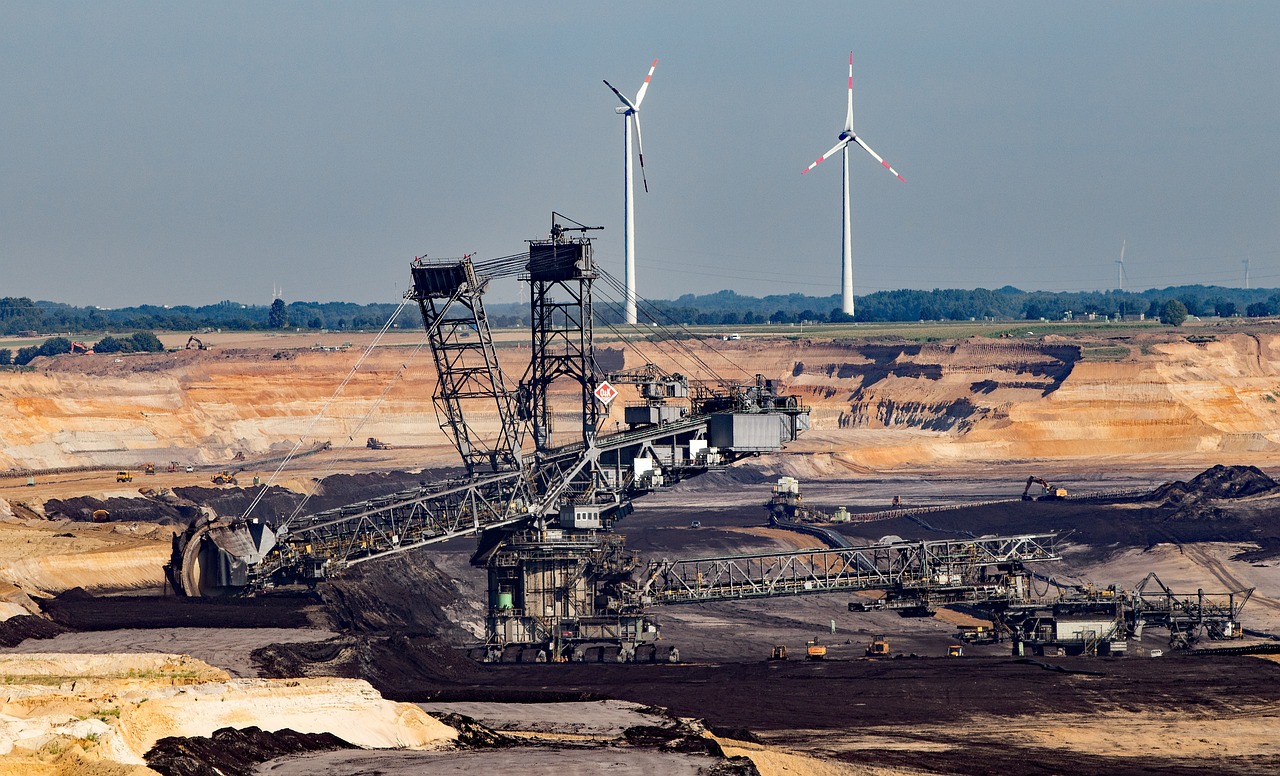
Environmental Regulations
When it comes to cryptocurrency mining, the conversation around is more crucial than ever. As miners operate large data centers that consume significant amounts of electricity, they are increasingly scrutinized for their impact on the environment. This scrutiny is not just a passing trend; it is a reflection of a global movement towards sustainability and responsible energy consumption. Miners need to be aware of the various laws that govern energy use and emissions in their respective jurisdictions. These laws can vary widely, impacting everything from the types of energy sources that can be used to the emissions standards that must be met.
For instance, in some regions, miners are incentivized to use renewable energy sources such as solar or wind power. This not only helps in reducing their carbon footprint but can also lead to financial benefits through tax credits or subsidies. On the flip side, failing to comply with environmental regulations can result in hefty fines and even operational shutdowns. Therefore, understanding and adhering to these regulations is not just a legal obligation; it's a smart business strategy.
Moreover, the environmental impact of mining operations can be assessed through various metrics, including energy consumption and carbon emissions. Miners should consider conducting regular audits to evaluate their energy sources and consumption patterns. This can help identify areas for improvement and align their operations with sustainability goals. For example, companies can implement energy-efficient technologies and practices, such as using advanced cooling systems or optimizing their hardware for lower energy consumption.
To provide a clearer picture of how environmental regulations can influence mining operations, here's a simplified table outlining different energy sources and their environmental impacts:
| Energy Source | Environmental Impact | Regulatory Considerations |
|---|---|---|
| Coal | High emissions, significant pollution | Strict regulations in many jurisdictions |
| Natural Gas | Lower emissions than coal, but still significant | Moderate regulations |
| Renewable (Solar, Wind) | Minimal emissions, sustainable | Incentives and favorable regulations |
In addition to energy consumption, miners must also consider the impact of local laws. Zoning laws, for instance, can dictate where mining facilities can be established. Some localities may have restrictions on noise or emissions that could affect operational practices. Understanding these local regulations can help miners avoid legal pitfalls and ensure their operations are sustainable in the long run.
Ultimately, the key to navigating the complex landscape of environmental regulations in cryptocurrency mining lies in proactive compliance. By staying informed about local and national laws, adopting sustainable practices, and investing in renewable energy, miners can not only mitigate legal risks but also contribute positively to the environment. This approach not only fosters a better public image but can also lead to long-term financial benefits, making it a win-win situation for both miners and the planet.
- What are the main environmental concerns associated with cryptocurrency mining?
Cryptocurrency mining is often criticized for its high energy consumption and associated carbon emissions, particularly when fossil fuels are used as energy sources. - How can miners reduce their environmental impact?
Miners can reduce their impact by utilizing renewable energy sources, optimizing energy consumption, and adopting energy-efficient technologies. - Are there incentives for using renewable energy in mining?
Yes, many jurisdictions offer tax credits, subsidies, or other incentives to encourage the use of renewable energy in mining operations. - What should miners do if they fail to comply with environmental regulations?
Miners should consult with legal experts to understand their options, which may include rectifying the issue, paying fines, or even shutting down operations temporarily.
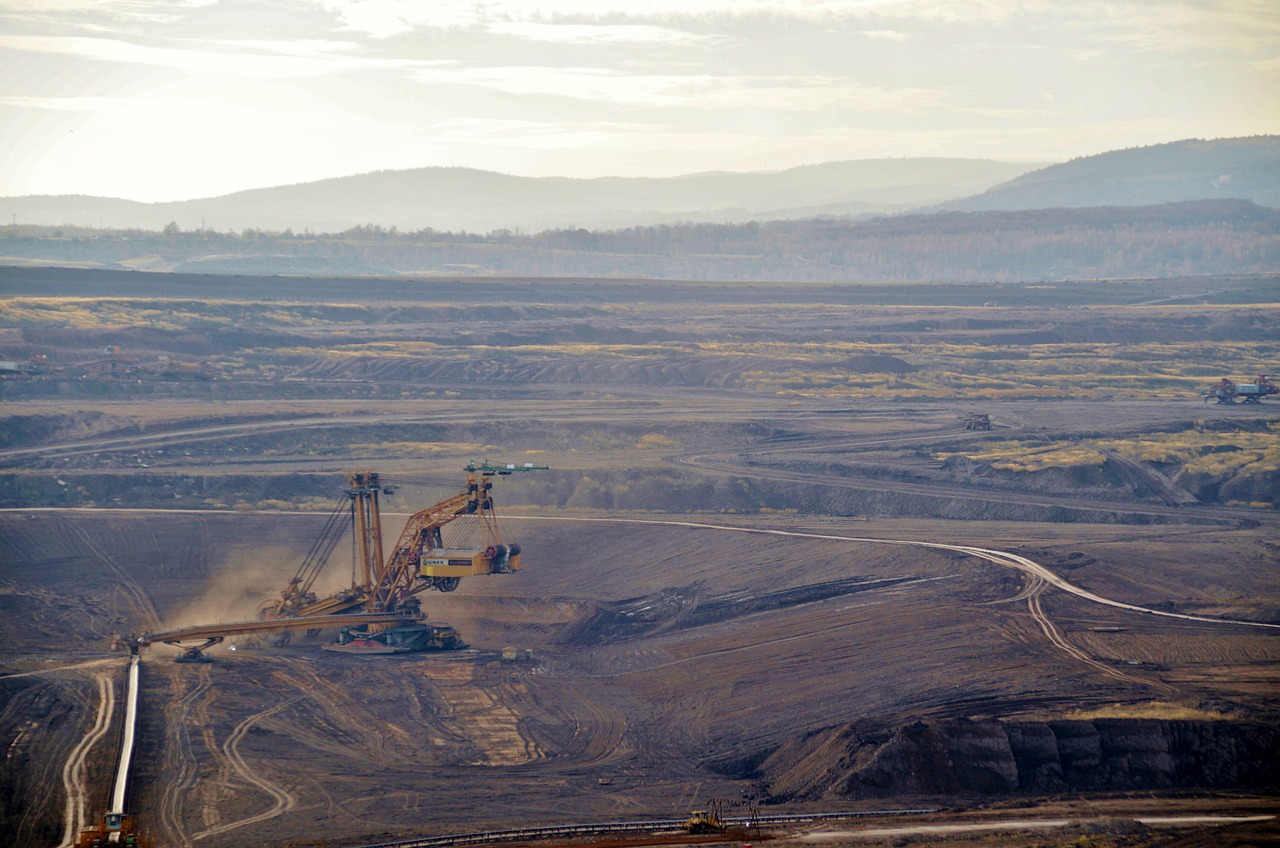
Impact of Local Laws
When it comes to cryptocurrency mining, local laws can significantly shape your operational landscape. Just like a gardener must understand the soil and climate to grow the best plants, miners need to be acutely aware of the legal environment in their specific region. Local regulations can dictate everything from the location of mining operations to the methods used for mining itself. For instance, some jurisdictions might impose strict zoning laws that limit where mining facilities can be established. This means that if you're eyeing a particular spot for your mining rig, you better check if it's even legal to set up shop there!
Furthermore, local laws can also influence the costs associated with mining. In areas where energy consumption is heavily regulated, miners might face higher electricity rates or even penalties for exceeding certain thresholds. It’s akin to trying to fill a bucket with water while someone is poking holes in the bottom—no matter how much effort you put in, you might still end up with an empty bucket if you’re not careful. Understanding these local laws is crucial for maintaining profitability and ensuring that your mining operations are sustainable in the long run.
In addition to zoning and energy regulations, local laws can also encompass a variety of other factors, such as:
- Noise Regulations: Mining operations can be noisy, especially with multiple machines running. Local noise ordinances may require you to limit operational hours or implement soundproofing measures.
- Land Use Regulations: Some areas may have specific land use policies that restrict industrial activities, including cryptocurrency mining.
- Tax Incentives or Penalties: Local governments may offer tax breaks for energy-efficient operations or impose penalties for excessive energy use.
Failing to comply with these local laws can lead to severe consequences, including fines, forced shutdowns, or even legal action. It’s not just about knowing the rules; it’s about playing the game wisely. Just as a chess player anticipates their opponent’s moves, miners must stay ahead of regulatory changes and adapt their strategies accordingly. This proactive approach can save you time, money, and a whole lot of headaches down the road.
Ultimately, the impact of local laws on cryptocurrency mining is a multifaceted issue that requires careful consideration. By keeping abreast of the legal landscape and aligning your operations with local regulations, you can ensure that your mining endeavors not only thrive but also contribute positively to the community.
- What are the common local laws that affect cryptocurrency mining?
Common local laws include zoning regulations, noise ordinances, and energy consumption limits. - How can I find out about local regulations in my area?
Consult local government websites, legal advisors, or industry groups that focus on cryptocurrency regulations. - What are the consequences of not complying with local laws?
Non-compliance can lead to fines, shutdowns, and legal action against your mining operation.
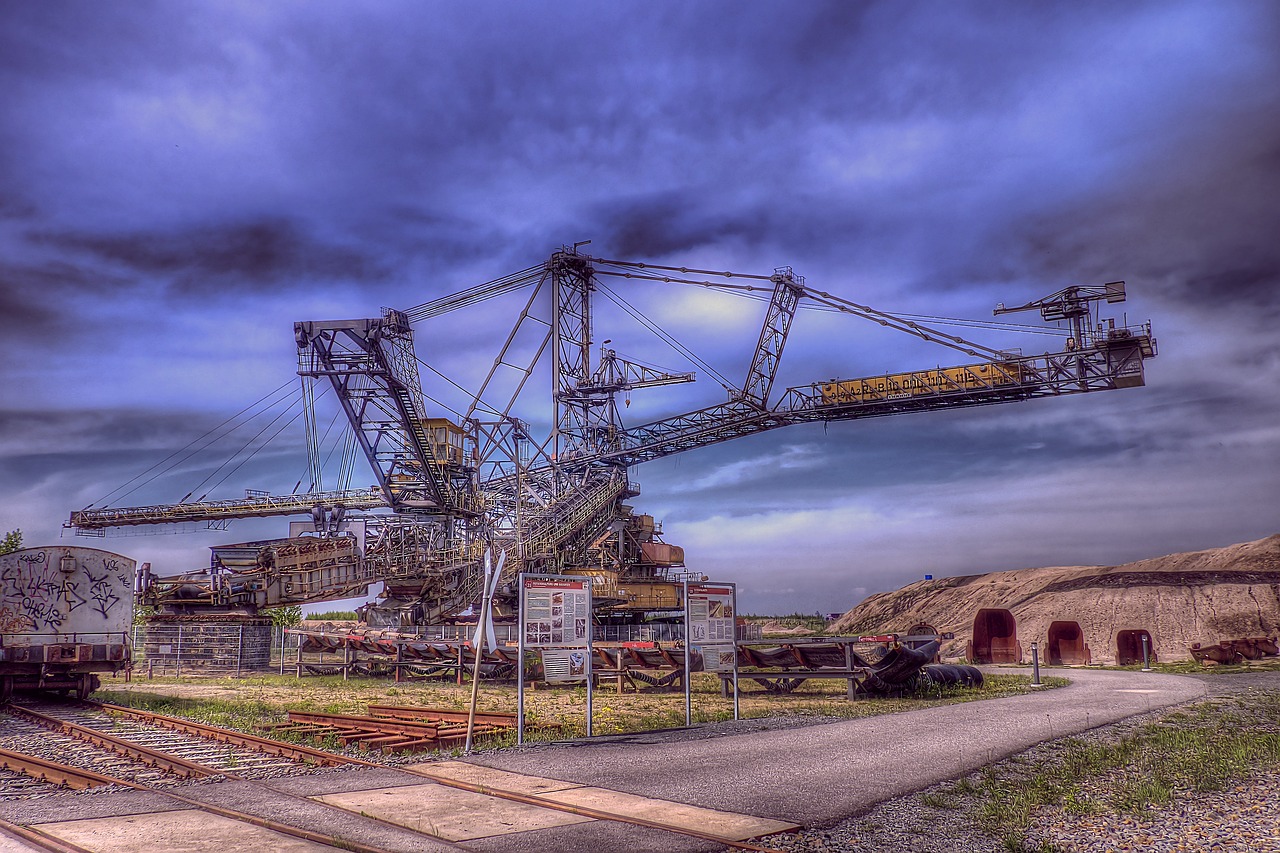
Compliance Strategies
When it comes to navigating the complex world of cryptocurrency mining, having a solid compliance strategy is not just a nice-to-have; it's a must-have. Think of compliance as your safety net, ensuring that your operations not only thrive but also adhere to the myriad of regulations that govern this dynamic industry. To effectively manage legal risks, miners need to adopt a multi-faceted approach that encompasses both operational practices and long-term planning.
One of the most effective strategies is to embrace renewable energy sources. With the growing scrutiny on the environmental impact of mining, transitioning to green energy not only helps in reducing your carbon footprint but also positions your operation as a socially responsible entity. Imagine powering your mining rigs with solar or wind energy; not only does this mitigate regulatory risks related to environmental compliance, but it can also lead to significant cost savings in the long run.
In addition to renewable energy, implementing energy-efficient technologies should be a priority. This can include optimizing your mining hardware for better performance or utilizing advanced cooling systems that reduce energy consumption. By being proactive in adopting these technologies, you can stay ahead of regulatory changes and demonstrate your commitment to sustainability. Miners who invest in energy efficiency often find themselves in a better position to negotiate with regulators and local governments.
Furthermore, it’s crucial to stay informed about the ever-evolving regulatory landscape. Regularly reviewing local, national, and international regulations will help you identify any changes that could affect your operations. For instance, if a new law is passed regarding emissions standards, being aware of it early allows you to adjust your practices accordingly, thereby avoiding potential fines or legal issues.
To ensure that you are compliant, consider conducting regular audits of your operations. This includes not only environmental audits but also financial audits to ensure that your tax obligations are being met. These audits can help you identify areas for improvement and ensure that you are not caught off guard by legal challenges.
Lastly, developing a strong relationship with legal experts who specialize in cryptocurrency regulations can be invaluable. They can provide tailored advice that aligns with your specific operations and help you navigate the complexities of compliance. Remember, it’s better to be proactive than reactive when it comes to legal risks.
In summary, a robust compliance strategy for cryptocurrency mining operations should include:
- Adopting renewable energy sources
- Implementing energy-efficient technologies
- Staying updated on regulatory changes
- Conducting regular audits
- Consulting with legal experts
By taking these steps, miners can effectively manage legal risks and ensure that their operations are not only profitable but also sustainable and compliant with the law.
Q: What are the main legal risks associated with cryptocurrency mining?
A: The main legal risks include regulatory compliance, environmental laws, tax obligations, and contractual disputes.
Q: How can I ensure compliance with environmental regulations?
A: You can ensure compliance by adopting renewable energy sources, implementing energy-efficient technologies, and staying informed about local regulations.
Q: What should I include in my contracts with partners and suppliers?
A: Contracts should clearly define roles, responsibilities, and expectations, and include dispute resolution mechanisms to handle potential conflicts.
Q: Why is it important to consult with legal experts?
A: Legal experts can provide tailored advice to help navigate the complex regulatory landscape, ensuring that your operations remain compliant and sustainable.
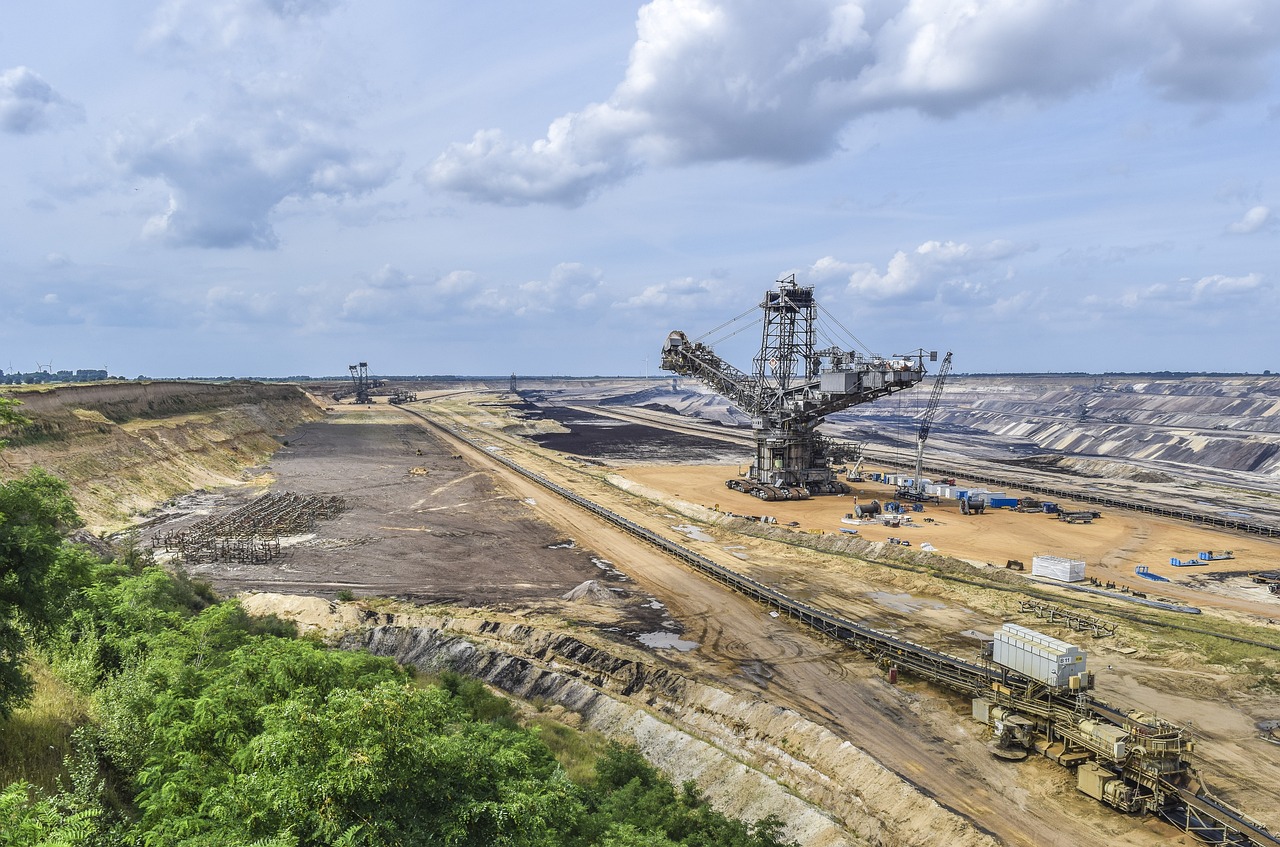
Tax Implications
When it comes to cryptocurrency mining, understanding the is crucial for ensuring compliance and avoiding unexpected legal troubles. As a miner, you're not just generating digital coins; you're also stepping into a complex world of tax obligations that can vary significantly based on your location and the specifics of your operations. So, what do you need to know? Let's break it down.
First off, one of the primary tax obligations for cryptocurrency miners is the income tax. When you successfully mine a coin, the IRS (or your local tax authority) considers this as taxable income at the fair market value of the cryptocurrency on the day you receive it. This means that if you mine Bitcoin, for example, and its value is $20,000 when you receive it, you are liable to pay taxes on that amount as income, regardless of whether you sell it right away or hold onto it for a while.
Additionally, miners need to be aware of capital gains tax. This comes into play when you eventually sell or exchange the cryptocurrency you mined. If you sell your Bitcoin later for $25,000, the profit of $5,000 would be subject to capital gains tax. The rate can vary depending on how long you've held the asset, distinguishing between short-term and long-term capital gains. Short-term gains are typically taxed at your ordinary income tax rate, while long-term gains may benefit from lower tax rates.
But that's not all! There are also potential deductions available for miners. You can deduct certain expenses related to your mining operations, which can significantly reduce your taxable income. These expenses might include:
- Electricity costs
- Equipment purchases and depreciation
- Repairs and maintenance
- Internet costs
However, it’s essential to keep meticulous records of all your transactions and expenses. The IRS requires detailed documentation, so consider using accounting software tailored for cryptocurrency transactions to streamline this process. This not only helps in filing your taxes but also protects you in case of an audit.
Furthermore, the tax landscape for cryptocurrency is constantly evolving. Governments around the world are still figuring out how to regulate and tax digital currencies, which means miners must stay informed about any changes that could affect their obligations. For instance, some jurisdictions might introduce new laws that could either benefit or burden miners, so keeping an eye on local regulations is vital.
In summary, while cryptocurrency mining can be a lucrative venture, it comes with its fair share of tax implications. By understanding your obligations regarding income tax, capital gains tax, and potential deductions, you can navigate these waters more smoothly. Always consider consulting with a tax professional who is familiar with cryptocurrency to ensure you’re making the most of your situation while staying compliant.
- Do I need to report mined cryptocurrency on my taxes? Yes, mined cryptocurrency is considered taxable income and must be reported.
- Can I deduct my mining expenses? Yes, you can deduct certain expenses related to mining, such as electricity and equipment costs.
- What happens if I don’t report my mined cryptocurrency? Failing to report income can lead to penalties, fines, and potential legal action.

Contractual Agreements
In the fast-paced world of cryptocurrency mining, play a pivotal role in safeguarding operations and mitigating legal risks. Think of contracts as the foundation of trust between parties, whether they are partners, suppliers, or customers. Without a solid contract, you might as well be building a sandcastle at the beach—beautiful but ultimately unstable. So, what exactly should miners consider when drafting these agreements?
First and foremost, it’s crucial to ensure that all agreements are well-drafted and comprehensive. This means clearly defining the roles and responsibilities of each party involved. For instance, if you’re partnering with a supplier for mining hardware, your contract should outline delivery timelines, payment terms, and warranty conditions. Ambiguities in contracts can lead to misunderstandings, and in the world of cryptocurrency, misunderstandings can translate into significant financial losses.
Moreover, it’s essential to include clauses that address potential risks and liabilities. Consider this: what happens if the mining equipment fails due to a supplier's negligence? A well-crafted contract should include indemnification clauses that protect your interests and outline the responsibilities of each party in such scenarios. This not only provides peace of mind but also ensures that everyone is on the same page regarding their obligations.
Another key aspect of contractual agreements in cryptocurrency mining is the inclusion of service level agreements (SLAs). SLAs are specific contracts that define the expected level of service between a service provider and the mining operation. They set the standards for performance and can include metrics such as uptime, response time for support, and penalties for non-compliance. Imagine you’re running a mining operation, and your hosting provider guarantees 99% uptime. If they fail to meet this standard, your SLA should outline the consequences, providing you with a safety net.
Furthermore, it’s wise to incorporate dispute resolution mechanisms in your contracts. Disputes are inevitable in any business, and having a clear path for resolution can save both time and money. You might choose to include clauses that require mediation or arbitration before any legal action is taken. This not only streamlines the process but also often results in less adversarial outcomes. Just like a well-tuned machine, having a smooth dispute resolution process can keep your operations running without unnecessary hiccups.
In summary, contractual agreements in cryptocurrency mining are not just formalities; they are essential tools for risk management. By ensuring that your contracts are comprehensive, clear, and well-structured, you can protect your interests and foster strong relationships with partners and suppliers. After all, in the intricate dance of cryptocurrency mining, having the right partners and a solid foundation is key to success.
- What should I include in a mining contract? Ensure to include roles, responsibilities, payment terms, and liability clauses.
- How can SLAs benefit my mining operation? SLAs set clear performance expectations and provide recourse in case of non-compliance.
- What is the best way to resolve disputes? Consider including mediation or arbitration clauses to streamline the dispute resolution process.

Service Level Agreements
Service Level Agreements (SLAs) are not just legal jargon; they are the backbone of trust and clarity in cryptocurrency mining operations. Imagine you’re in a partnership where expectations aren't clearly defined—chaos could ensue! SLAs serve as a roadmap, detailing the obligations and expectations between mining operations and their service providers, such as cloud hosting services or hardware suppliers. They outline the level of service expected, the metrics by which that service is measured, and the remedies or penalties for failing to meet those expectations. This is crucial in an industry where downtime can mean significant financial losses.
When drafting an SLA, it’s essential to consider several key elements to ensure that both parties are protected and clear on their responsibilities. For instance, the agreement should specify the uptime guarantees, which indicate the percentage of time that services will be operational. In the fast-paced world of cryptocurrency mining, even a few hours of downtime can lead to substantial losses. Therefore, a common SLA might include a commitment to 99.9% uptime, along with provisions for service credits if that threshold is not met.
Moreover, SLAs should also encompass response times for support requests, detailing how quickly the service provider will address issues that arise. For example, if a mining rig goes offline, how quickly can the service provider respond? This is critical for maintaining operational efficiency and minimizing downtime. To illustrate, a well-structured SLA might look like this:
| Service Component | Standard | Penalty for Non-Compliance |
|---|---|---|
| Uptime Guarantee | 99.9% | 5% credit on monthly bill |
| Response Time for Critical Issues | 1 hour | 10% credit on monthly bill |
| Response Time for Non-Critical Issues | 4 hours | 5% credit on monthly bill |
In addition to these elements, it’s wise to include clauses regarding dispute resolution and termination conditions. After all, what happens if things don’t go as planned? Having a clear process for resolving disputes can save both parties from prolonged conflicts that could disrupt mining operations. Similarly, outlining the conditions under which either party can terminate the agreement helps in managing expectations and reducing potential legal entanglements.
Ultimately, SLAs are about creating a win-win situation. They ensure that both the mining operation and the service provider are aligned in their goals, fostering a collaborative environment that can adapt to the ever-evolving landscape of cryptocurrency. As you venture into the world of cryptocurrency mining, investing time and resources into crafting solid SLAs can pay off significantly in the long run, ensuring smoother operations and reducing legal risks.

Dispute Resolution Mechanisms
In the fast-paced world of cryptocurrency mining, disputes can arise from a variety of sources, such as disagreements with partners, suppliers, or even regulatory bodies. To navigate these turbulent waters, it's essential to have robust in place. These mechanisms not only help in resolving conflicts efficiently but also contribute to maintaining strong business relationships and ensuring operational continuity.
One of the most common methods for resolving disputes is through mediation. In mediation, a neutral third party facilitates a discussion between the conflicting parties, helping them reach a mutually agreeable solution. This method is often preferred because it is less formal and can be quicker and cheaper than going through litigation. Imagine trying to fix a broken bridge; mediation acts as a skilled engineer who helps both sides come together to repair the gap without tearing down the entire structure.
Another effective mechanism is arbitration. In arbitration, an arbitrator—who is often an expert in the field—makes a binding decision after hearing both sides of the argument. This process is more formal than mediation but generally faster and less costly than a court trial. Many cryptocurrency mining companies include arbitration clauses in their contracts to ensure that any disputes are resolved swiftly, preventing prolonged disruptions in operations.
Moreover, it's vital to include dispute resolution clauses in all contractual agreements. These clauses outline the preferred methods for resolving disputes and can save both time and money. For example, a well-drafted clause might specify that any disputes must first go through mediation before escalating to arbitration. This tiered approach encourages parties to resolve issues amicably before resorting to more formal and costly measures.
Additionally, companies should consider establishing an internal dispute resolution process. This could involve a dedicated team that handles conflicts before they escalate, providing a first line of defense. Think of it as a safety net; it’s there to catch any issues before they fall into the abyss of costly legal battles.
In summary, having effective dispute resolution mechanisms is crucial for cryptocurrency mining operations. By incorporating mediation, arbitration, and well-defined clauses into contracts, miners can mitigate risks associated with disputes. These strategies not only foster a cooperative environment but also ensure that operations continue smoothly, even when challenges arise.
- What is the difference between mediation and arbitration?
Mediation involves a neutral third party helping the conflicting parties reach a mutual agreement, while arbitration involves a third party making a binding decision after hearing both sides. - Why are dispute resolution clauses important?
They outline the methods for resolving disputes, saving time and money by providing a clear path for conflict resolution. - Can internal dispute resolution processes be effective?
Yes, having a dedicated team to handle conflicts can prevent issues from escalating into more serious legal matters.
Frequently Asked Questions
- What are the main legal risks associated with cryptocurrency mining?
Cryptocurrency mining comes with various legal risks, including non-compliance with local regulations, environmental laws, and tax obligations. Miners must navigate a complex landscape of laws that can vary significantly by jurisdiction, which can lead to hefty fines or even shutdowns if not properly managed.
- Do I need a license to operate a cryptocurrency mining business?
Yes, in many jurisdictions, you will need specific licenses or permits to operate a cryptocurrency mining business. This can include business licenses, environmental permits, and possibly more depending on local laws. It's crucial to check your local regulations to ensure compliance and avoid legal issues.
- How can cryptocurrency miners comply with environmental regulations?
Miners can comply with environmental regulations by adopting renewable energy sources, such as solar or wind power, and implementing energy-efficient technologies. Additionally, understanding and adhering to local emissions standards can help align mining practices with sustainability goals.
- What tax implications should cryptocurrency miners be aware of?
Cryptocurrency miners face several tax obligations, including income tax on earnings from mining activities and capital gains tax when selling mined coins. Miners should also be aware of potential deductions related to equipment and operational expenses, so consulting a tax professional is advisable.
- How important are contractual agreements in cryptocurrency mining?
Contractual agreements are essential in cryptocurrency mining as they define the expectations and responsibilities between partners, suppliers, and customers. Well-drafted contracts can help mitigate legal risks and ensure smooth operations, particularly in a rapidly evolving industry.
- What are Service Level Agreements (SLAs) and why are they important?
Service Level Agreements (SLAs) are contracts that outline the expected level of service between mining operations and service providers. They are crucial for setting clear expectations regarding uptime, performance, and responsibilities, helping to prevent disputes and ensuring accountability.
- What dispute resolution mechanisms should be included in mining contracts?
Incorporating dispute resolution mechanisms such as mediation, arbitration, or escalation procedures in contracts can help manage potential conflicts effectively. These mechanisms provide a structured approach to resolving disputes, ensuring that operations can continue smoothly without prolonged interruptions.












